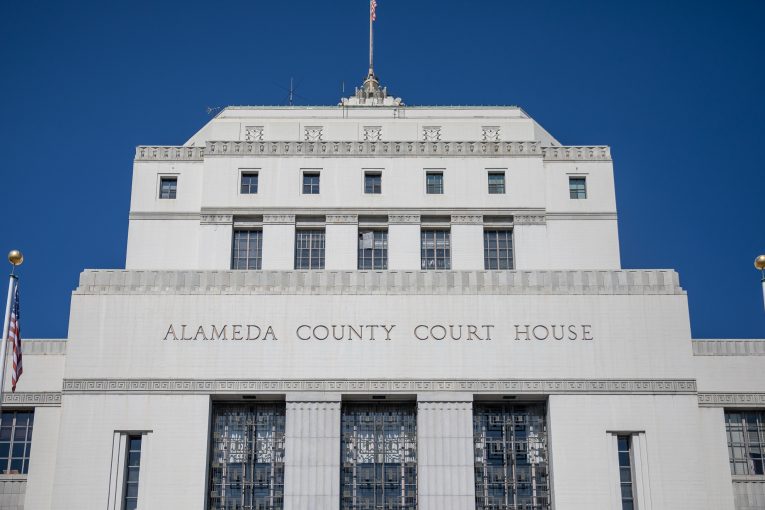
ALAMEDA, CA – Alameda County Superior Court Judge Thomas Stevens last week presided here in a hearing for a man in custody with a felony murder charge, who appealed through Penal Code section 1770.95 for resentencing, but admitted he couldn’t make a decision and scheduled another hearing.
With the charge dating back to 2013, Deputy District Attorney Robert Graffe remarked the accused’s case had conflicts with inadmissible testimony because of Prop. 115, which may render him unable to be resentenced.
(Note: According to CA.gov, Prop. 115 states “peace officers with specified training or five years of experience provide hearsay testimony during preliminary hearings.”)
But, Deputy Public Defender Christina Marie Moore proposed that Prop. 115 was not applicable because there was no motion hearing, and therefore nothing to consider.
DPD Moore noted the conditions of Prop. 115 allowed the proceeding of the accused’s hearing before in 2013.
Deputy District Attorney Graffe noted the court had to reconsider the testimony because of California Penal Code § 1772.6 d(3), which states “hearsay evidence that was admitted in a preliminary hearing pursuant to subdivision (b) of Section 872 shall be excluded from the hearing as hearsay, unless the evidence is admissible pursuant to another exception to the hearsay rule.”
The Penal Code § 1772.6 d(3) also states that there must be instead “substantial evidence to support a conviction for murder, attempted murder, or manslaughter is insufficient to prove, beyond a reasonable doubt, that the petitioner is ineligible for resentencing. If the prosecution fails to sustain its burden of proof, the prior conviction, and any allegations and enhancements attached to the conviction, shall be vacated and the petitioner shall be resentenced on the remaining charges.”
Judge Stevens remarked the accused should be present in court during these deliberations, because the court could grant a resentencing that might substantially relieve the accused’s sentence and proceed in a timely manner.
Judge Stevens ultimately decided to schedule another court date in a couple weeks, addressing the difficulties in determining the target offense due to these complications, an untimely unfolding of the case, and an absence of the accused, requesting for the presence of the accused either online or in person to settle the sentencing once and for all.